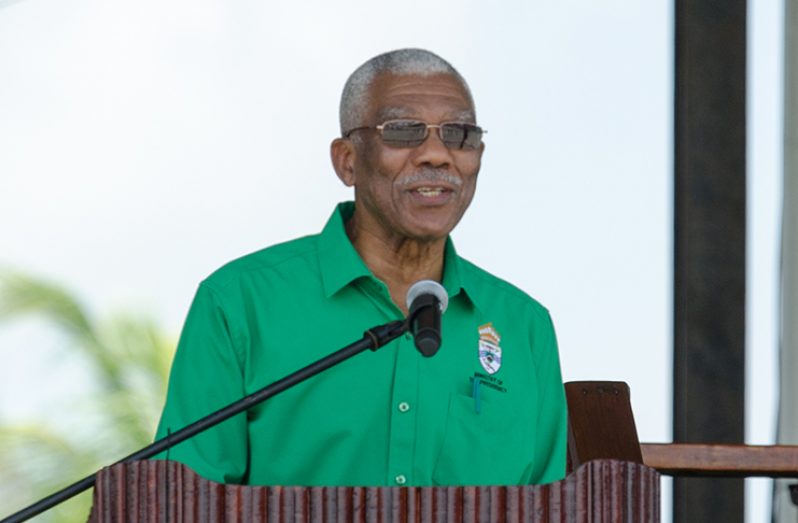WITH the rise in cases of non-communicable diseases in Guyana, President David Granger believes that one effective solution to the matter is to initiate a more robust health and wellness programme in public schools, so as to educate children on the benefits of pursuing a healthy lifestyle and also involve them in physical exercise.
This, he said, should commence at the nursery level and his government will ensure that this is done during the 2020 to 2029 Decade of Development, where a significant amount of money will be pumped into public education.
President Granger recently shared this view on the Guyana Chronicle’s Vantage Point. He agreed that much more needs to be invested in the public health apparatus and systems supporting wellness and healthcare.
According to World Health Organisation (WHO) Country Statistics (2016), cardiovascular diseases account for 34 per cent of all deaths in Guyana, followed by cancer and diabetes (eight per cent each), chronic respiratory diseases (three per cent) and other NCDs (14 per cent). Almost seven out of every 10 deaths of Guyanese aged 23-60 years are caused by cancers, chronic lung diseases, diabetes, heart disease and hypertension.
As a preventative measure, President Granger reiterated that education on adopting health-conscious lifestyles can significantly impact the rising statistics. “While some diseases are inevitable and unpreventable, as far as lifestyle diseases are concerned, there is much more we can do and this education has to be done within the public education system. Things can get better, we need to take better care of ourselves, it must start at childhood, it must start in the schools,” he said.
Schools must include physical exercise into their weekly timetable and the President urged the education system to pay attention to what is lacking in this regard. “One aspect of education is that there must be more playfields, more participation in sports at the level of school. Some schools have no play grounds, no sporting facilities. These are areas that public education must pay attention to,” the President said.
Under the President Granger administration, much has been invested in ensuring students at least have a meal at school. Several schools, particularly in the hinterland district, through the Five B’s initiative, have been benefitting from breakfast programmes since it was determined that many students go to school hungry. The hot meal programme was also implemented to provide more than just juice and biscuit for students whose parents cannot afford to provide a snack for them.
In Region 10, a decision was made to provide healthier food choices for these programmes and farmers have been contracted to supply the RDC with fresh fruits and vegetables. Regional Executive Officer, Orrin Gordon, has also amended the dormitory feeding programme to ensure students are fed more fresh foods, than canned foods.
While many diseases are unpreventable due to factors such as hereditary, many are created as a result of unhealthy lifestyles. The President urged Guyanese to eat more nutritious food and mothers to feed their children balanced meals. If a holistic approach is taken to tackle this health phenomenon, the burden on the healthcare system will be lightened.



.jpg)









